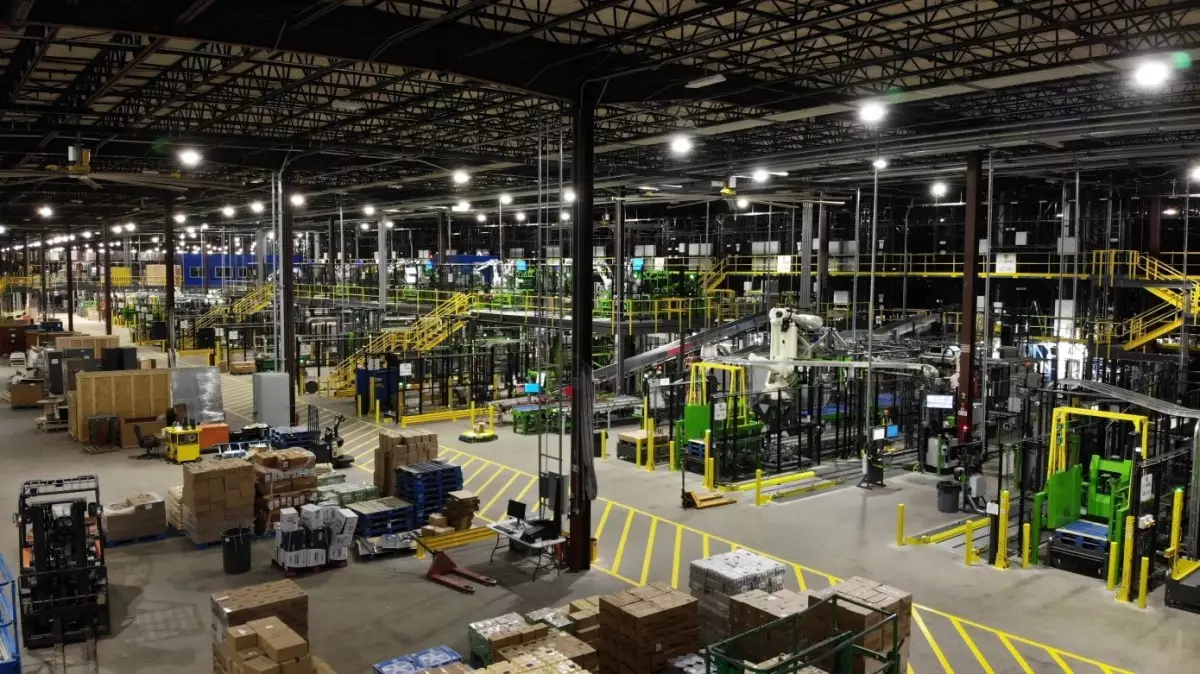In a significant development for the retail industry, Walmart has partnered with Symbotic, a Massachusetts-based robotics firm, to enhance its automation capabilities. This collaboration, announced recently, sees Symbotic acquiring control of Walmart’s automation business for $200 million in cash, alongside an additional potential $350 million contingent on certain performance metrics. This move signals a transformative shift in logistics and automation, placing Walmart’s extensive operations in the capable hands of a key technology supplier.
The financial framework of this deal is noteworthy. Walmart will essentially channel $520 million into Symbotic, which includes a $230 million upfront payment once the deal finalizes. This investment reflects Walmart’s commitment to optimizing its supply chain, particularly in automating its pickup and delivery facilities. By integrating Symbotic’s sophisticated back-end hardware and software solutions, Walmart aims to improve efficiency in its warehouses and distribution centers, ensuring a more streamlined operation in an ever-competitive retail landscape.
The relationship between Walmart and Symbotic is not a new one; it has evolved since 2017 when Walmart first began implementing automated systems within its distribution network. With Walmart being described as Symbotic’s “anchor” partner, this deal not only strengthens their ties but may also redefine the dynamics of retail automation. Unlike a typical acquisition, this partnership blends resources and expertise, allowing Symbotic to leverage Walmart’s expansive reach while providing tailored technological solutions.
While this deal establishes a robust alliance between Walmart and Symbotic, it raises questions regarding the future of Symbotic’s contracts with other clients. The potential shift in focus toward exclusive services for Walmart could alter the competitive landscape within the robotics sector. This mirrors Amazon’s previous strategic move when it acquired Kiva Systems in 2012, leading to the establishment of its own robotics division. However, Symbotic finds itself in a unique position, as it has built its reputation largely on its relationship with Walmart, yet it must ensure it maintains flexibility in its operations, providing services to other retailers as well.
This deal unfolds against a backdrop of evolving market dynamics, particularly in light of anticipated changes in U.S. corporate merger regulations under a potentially renewed political administration. As companies like Amazon experience setbacks, such as the failed acquisition of iRobot, Walmart’s proactive measures in partnering with Symbotic may set new precedents in the industry. This collaboration is not expected to finalize until the second quarter of 2025, providing ample time for analysts and stakeholders to assess the implications of this groundbreaking agreement.
Walmart and Symbotic’s strategic partnership marks a pivotal moment in retail automation, promising to reshape logistics and supply chain management within the industry. As technology continues to evolve, this collaboration could serve as a blueprint for future partnerships, paving the way for enhanced efficiencies not just for Walmart but potentially setting standards that resonate across the retail landscape.

